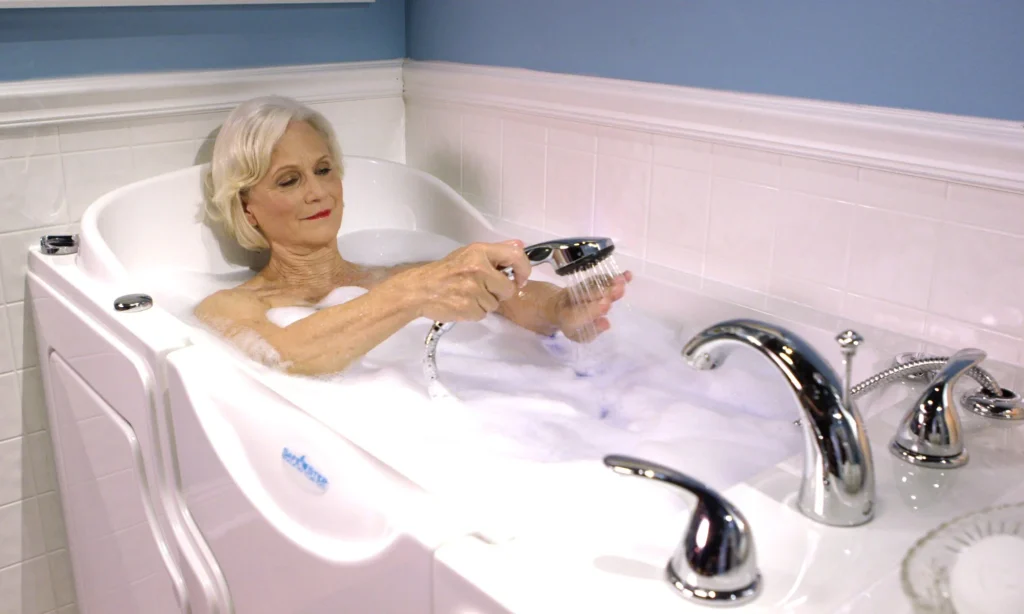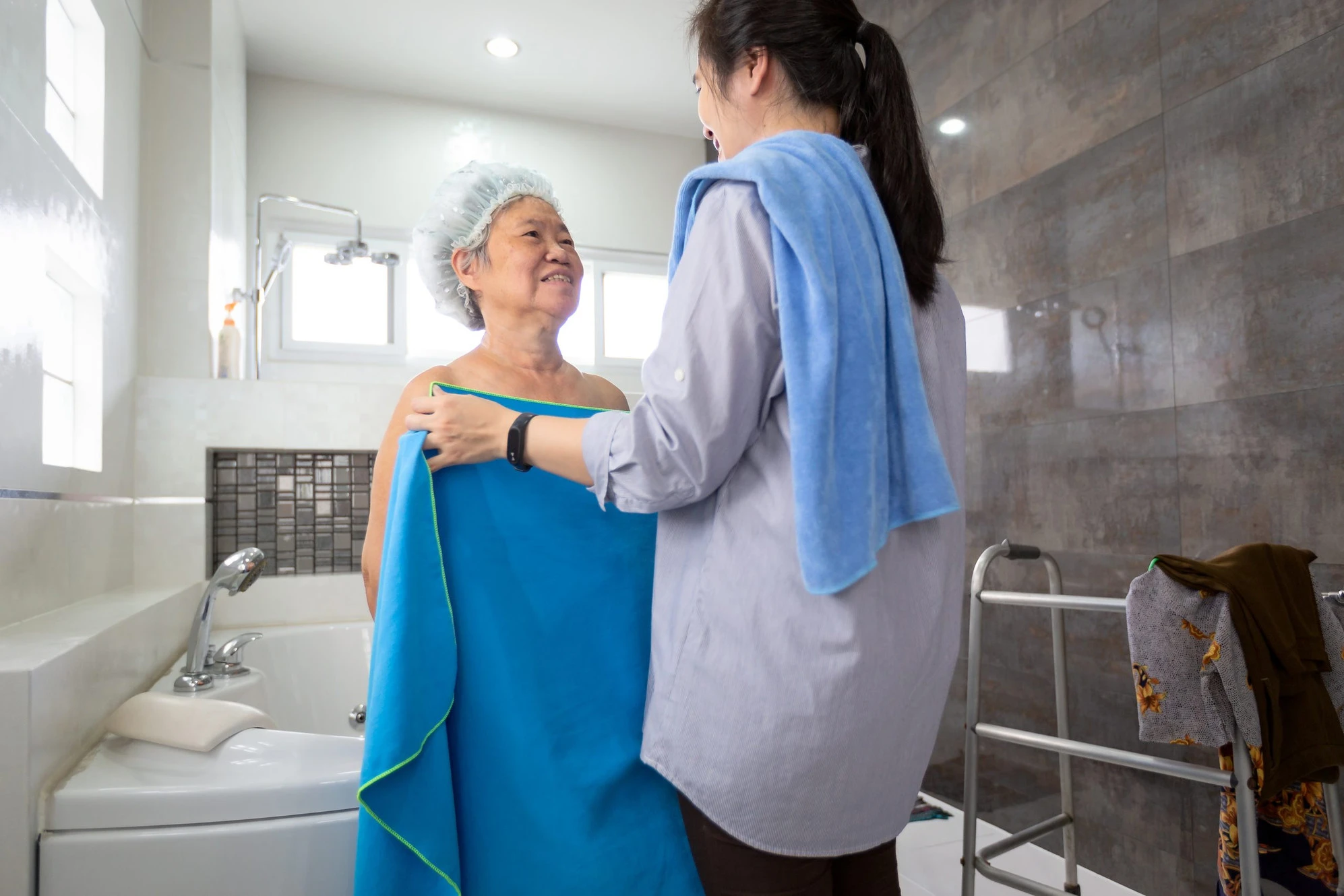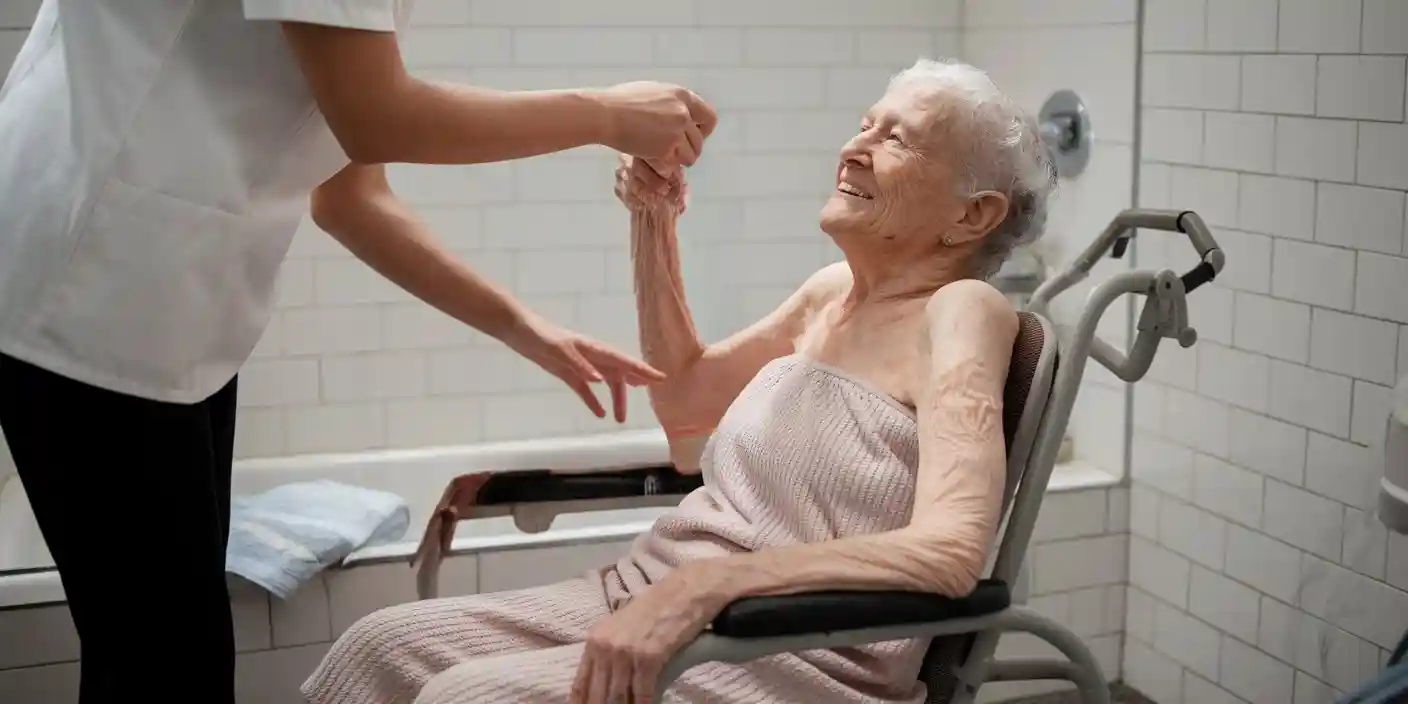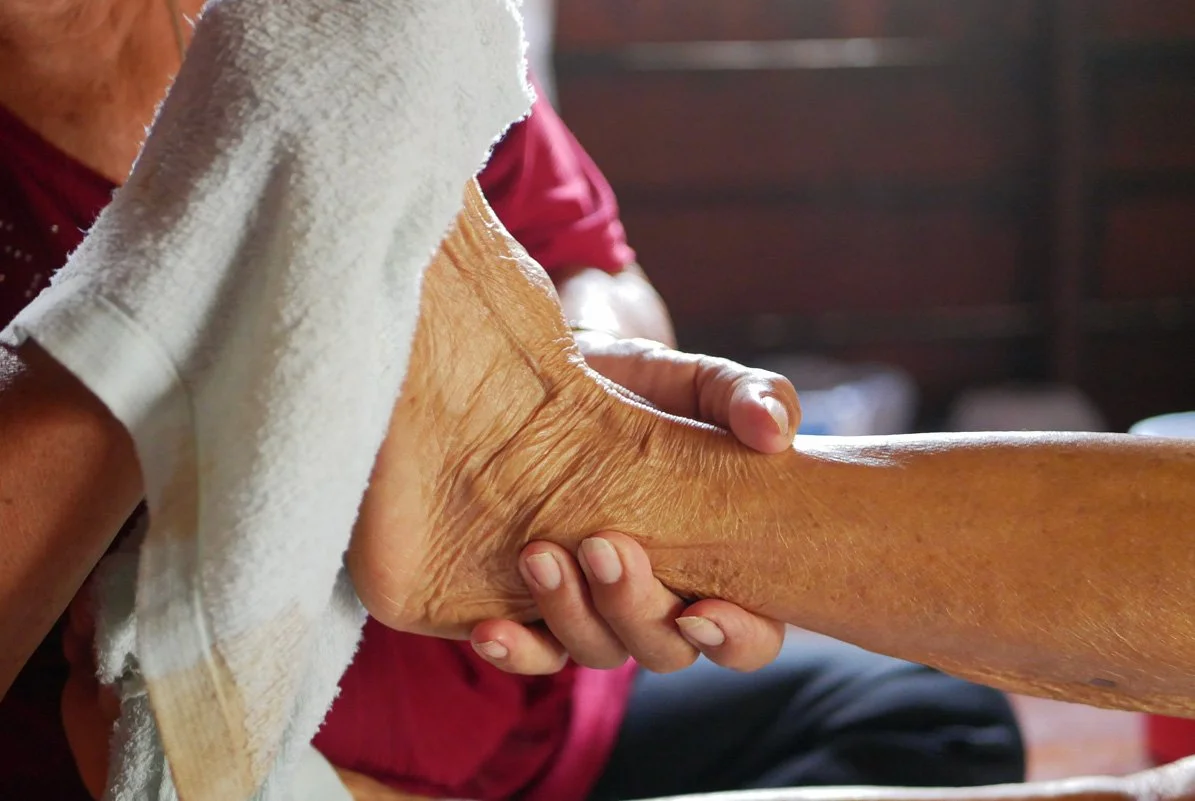
6 Important Bathing Tips for the Elderly
How to bathe a senior? In this article from humanhealthmag, we will examine the basic method and bathing tips for the elderly and maintaining their safety in the bathroom. People should use very mild detergents such as soap or baby shampoos or special body wash pads to bathe the elderly so as not to remove the hidden fat on the surface of the skin with their hands. Because it is very difficult to compensate and restore the fat lost due to old age and the body’s inability to return the lost substances.
We will also examine topics such as, the basic method of bathing the elderly, how to bathe the elderly and maintaining safety in the bathroom when bathing the elderly. So keep reading until the end of this article.
The Challenges of Bathing the Elderly at Home
As people age, many seniors are unable to perform daily tasks independently for various reasons. Physical problems caused by decreased muscle and joint strength, diseases such as Alzheimer’s and depression, or complications after surgery can make it difficult for them to handle tasks such as bathing alone. For this reason, caregivers of the elderly and themselves must follow bathing tips for the elderly.

Also, environmental hazards such as slippery surfaces in the bathroom can lead to accidents such as bone fractures or other injuries. In these situations, the presence of a skilled and knowledgeable nurse or caregiver next to the elderly to help with these tasks is essential to prevent any accidents and maintain their safety and health. As we mentioned in How to Care Seniors at Home, older adults need care, whether it’s during bathing or at any other time.
Bathing Tips for the Elderly
Helping an elderly person to bathe may seem difficult to you. But knowing the steps of bathing an elderly person and the correct bathing techniques can be useful for you too. Here are some bathing tips for older adults:
1- Preparing the elderly person for bathing
At this stage of bathing an elderly person, the nurse or caregiver should carefully help the elderly person to take off their clothes safely and comfortably. If the elderly person is unable to do this alone, the nurse should do this process with the cooperation and support of the elderly person or with the participation of family and caregivers. At this time, it is especially important to pay attention to the privacy and comfort of the elderly person.
2- Adjusting the water temperature
One of the most important bathing tips for the elderly that should be carefully considered is adjusting the water temperature. Elderly people are often more sensitive to temperature changes than other people, and the water temperature for them should be adjusted according to their comfort and physical needs.

3- Taking care of the elderly from slipping
One of the principles and bathing tips for the elderly is to guide and help the elderly to use the handles correctly. The caregiver should carefully and gently guide the elderly to grab the handles and prevent any sudden movements to reduce the possibility of falling. In addition, using special bath chairs can allow the elderly to bathe safely and more comfortably. Also, paying attention to choosing anti-slip floor coverings and taking care not to spill detergent on the bathroom surface plays an important role in preventing the elderly from slipping.
4- Starting to bathe
In the later stages of bathing the elderly at home, especially when the elderly person has cognitive impairment or dementia, the caregiver should be with the elderly person; because the person may not be able to do this alone. The nurse or caregiver should help the elderly and intervene in some steps, such as washing their head or body. Depending on the physical and mental condition of the elderly, the nurse may need to assist in all stages of bathing, including washing sensitive areas of the body.
5- Use mild detergents
Other bathing tips for the elderly include using mild detergents. To care for the skin of the elderly, it is better to use mild detergents that are specifically designed for sensitive skin to maintain the natural and moisturizing oil of the skin. The skin of the elderly is more sensitive and drier than others due to the reduced activity of the sebaceous glands. Also, instead of using rough loofahs and bags, it is better to wash the skin with soft hands and avoid rubbing or scratching with them to prevent damage to the skin. As we said in common skin diseases in the elderly, special detergents should be used for these people.
6- Getting out of the bath
After getting the elderly person out of the bath, the caregiver should first wrap a soft, non-slip towel around the elderly person’s body and wait a few minutes for the elderly person’s body to relax. Before dressing, applying a lotion or moisturizer after bathing can help retain moisture in the skin and prevent further dryness. The caregiver should also help the elderly person get dressed so that they feel more comfortable.

Psychological Tips When Bathing the Elderly
One of the most important bathing tips for the elderly is to maintain the dignity of the elderly. We all understand the importance of maintaining self-esteem for the elderly; therefore, by taking simple but effective steps when bathing the elderly at home, the caregiver can strengthen the elderly’s sense of independence and autonomy. For example, maintaining the privacy of the elderly is very important and must be respected. The nurse or caregiver should place a towel on the elderly’s feet before starting to wash so that the elderly feel more comfortable and secure. Only remove the towel when necessary and when there is a need to wash specific areas.
Also, if the elderly person is able to do some of their own personal tasks, the nurse asks them to do them before starting to bathe. For example, the nurse or caregiver provides them with a soft, special washcloth so that the elderly can do part of the washing process themselves. This not only maintains the independence of the elderly person, but also gives them a sense of control and greater self-confidence. In addition, when bathing the elderly person, you should act carefully and calmly and avoid rushing, because speed may lead to damage to the elderly person’s skin or body.
Concluding Remarks
In this article, we talked about bathing tips for the elderly. When bathing the elderly, it is very important what chemicals you use; because it is very difficult to compensate and restore lost fat due to old age and the body’s inability to return lost substances. With age, dry skin appears in people, and by knowing the basic method of bathing the elderly, we can help with this issue. Also, how to bathe and maintain safety in the bathroom when washing the elderly is very important.
We’re curious to hear your thoughts! What’s your take on this topic? Comment below and join the conversation; your opinion could spark new ideas!

Frequently Asked Questions
What Is the Best Water Temperature for Bathing the Elderly?
It is recommended for everyone, young and old, to never take a shower with hot water, but this advice and emphasis is more serious for the elderly because, due to aging and hormonal changes specific to aging, the skin undergoes changes that cannot retain the water in it as well as in previous years. So be sure to take a shower with lukewarm water and before bathing, be sure to check the water temperature to ensure that it is not too hot.
Which Detergents Are Recommended for Bathing the Elderly?
The elderly should use very mild detergents for washing the body so as not to remove the fat hidden on the surface of the skin with their hands. The elderly should not use rough loofahs and bags and rub their skin with loofahs and bags under the pretext of relieving itching.
What Is the Most Suitable Towel for Bathing the Elderly?
The material of the elderly’s towel should be soft and delicate so that the rough texture of the towel does not irritate the skin, even this delicate towel should not be moved violently on the skin. Because due to the loss of skin texture in the elderly, their skin may be damaged, it is better to keep the towel in an environment outside the bathroom to take care of the skin in the elderly after bathing and wearing clothes.
